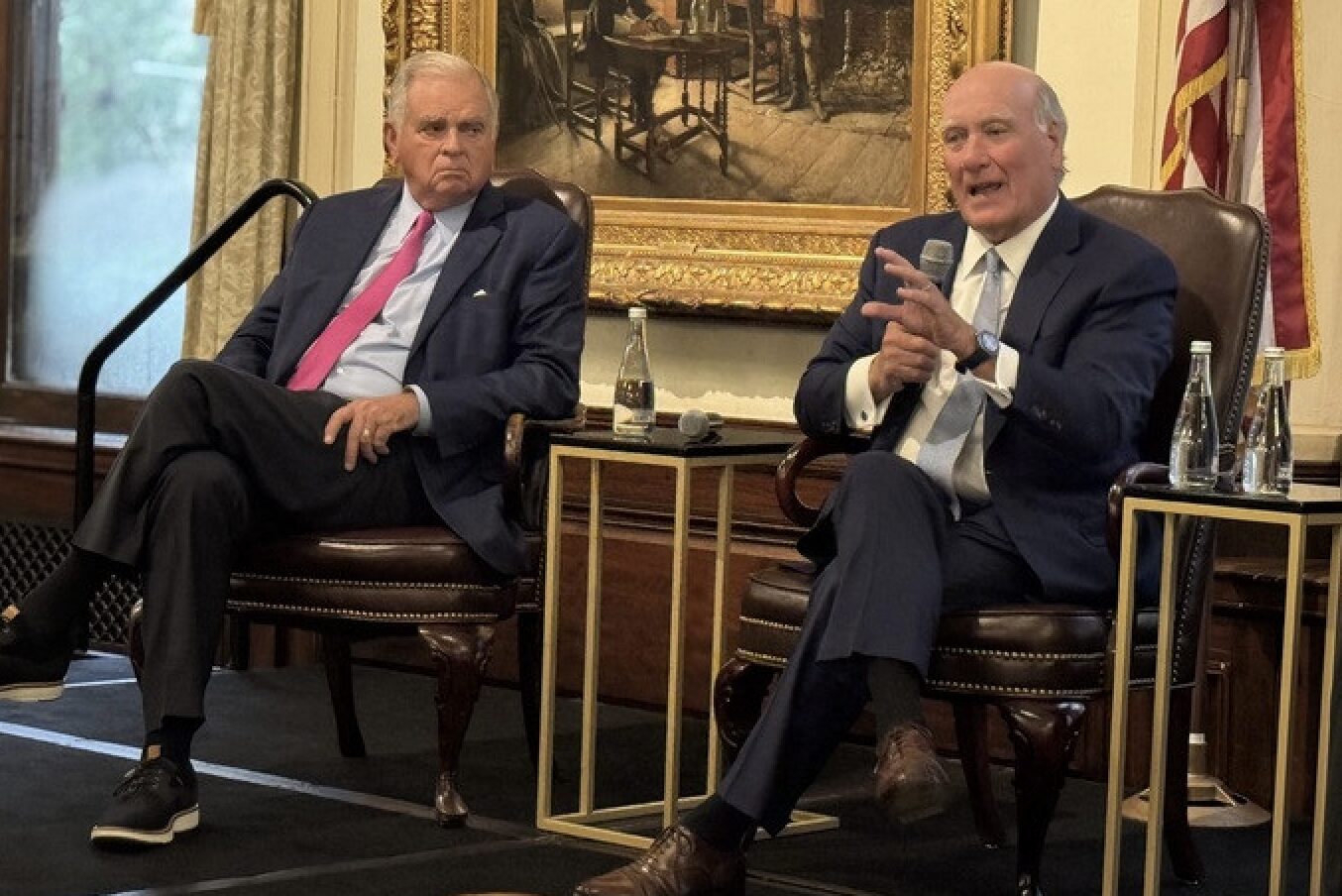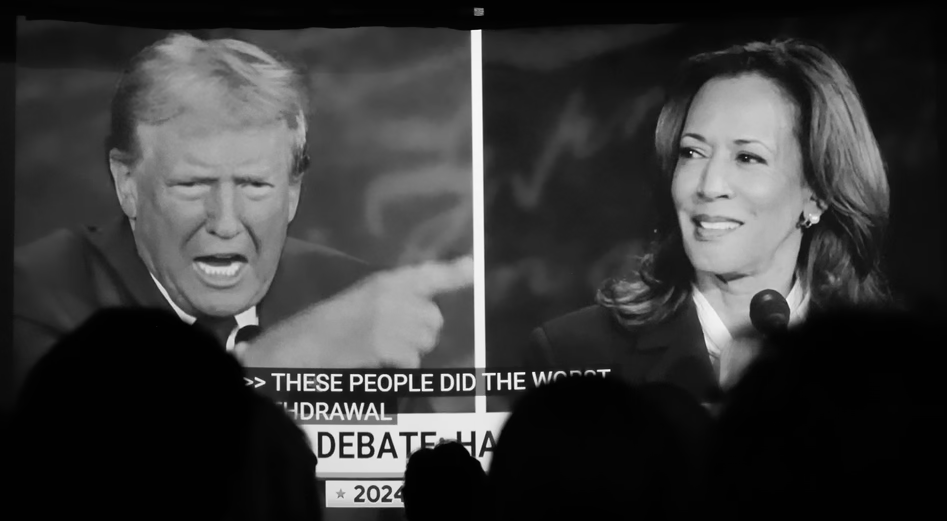
Time to end secret data laboratories—starting with the CDC
The American people are waking up to the fact that too many public health leaders have not always been straight with them. Despite housing treasure…
Thought Leader: Marty Makary

REDISTRICTING DE JOUR: The redistricting battle isn’t just a Texas or California thing. The fight has returned to draw political maps in Illinois, too — and two veterans of the Obama administration are leading the charge.
The players: Former White House chief of staff Bill Daley, a Chicago Democrat, and Ray LaHood, a Peoria Republican who served as Obama’s transportation secretary, rolled out their “Fair Maps Illinois” proposal Tuesday at the Union League Club of Chicago. Their goal: stop state lawmakers from drawing their own districts, a system that critics say guarantees safe seats, partisan supermajorities, and little incentive for compromise.
“We’re rolling the dice here,” LaHood said, noting the 5-2 Democratic tilt of the Illinois Supreme Court could hurt the group’s efforts. “There are no guarantees that the Illinois Supreme Court, as it exists today, will not throw this out. What we’ve done, though, is structure the language based on what the previous Supreme Court ruled in 2016.”
The plan: Get voters to approve a state constitutional amendment via a ballot initiative during the 2026 general election.
How it would work: If an amendment is passed, a 12-member commission appointed by legislative leaders would draw the maps with limits on using partisan or voting data. If the panel deadlocks, the Supreme Court would nominate two people of different parties and the “winner” would be chosen by lot. The size of the Illinois General Assembly would also be tied to census population counts.
Sounds familiar: Citizen-led efforts to create independent redistricting commissions have battled in the courts. In 2016, the state’s high court ruled such ballot measures must focus strictly on the “structure and procedure” of the legislature. To sidestep that precedent, the new plan focuses only on state legislative maps — not congressional ones. “We’d love to, but we can’t,” said election lawyer Michael Dorf, who helped draft the amendment. Former State Board of Elections Chair Bill Cadigan is also part of the redistricting effort.
The ripple effect: The group expects legislators elected from a fairly drawn state map will in turn draw a fair congressional map.
The plan isn’t perfect, acknowledged Daley, arguing it would force politicians to appeal to broader swaths of voters. “We’re not looking for perfection here,” he said. “We’re trying to take the limitations of the Constitution courts have given us and trying to come up with a better system than just allowing whoever’s got a massive majority in the legislature rigging the whole thing.”
Not everyone is on board. CHANGE Illinois, which supported the 2016 push, saying it is “troubled” that the initiative moved ahead without more input from community organizations and leaders, “who are most impacted by racial and partisan gerrymandering.”
Former Chicago Mayor Lori Lightfoot, however, lent her support. “Decades of hyper-gerrymandered districts have produced supermajorities in both chambers of the General Assembly, to the point where they won’t even talk to Republicans because they don’t need their votes,” she said during the Q&A. “What you end up doing is playing to the extremes of your caucus. We are paying for the General Assembly’s failure to be accountable to average voters.”
To get on the 2026 ballot, supporters will need more than 328,000 valid signatures — double that to withstand challenges — and as much as $4 million to fund the campaign.
If the question makes it to the 2026, it would put a spotlight on Gov. JB Pritzker,reports the Tribune’s Dan Petrella. The governor has said he supports fair maps being done nationally.
Diving into the details: The proposal would create a 12-member “Legislative Redistricting Commission,” by Capitol News’ Andrew Adams
About Tuesday’s presentation: It was organized by the Lincoln Forum of Chicago, and the Tribune’s Rick Pearson moderated.
DISMISSED: A federal judge sided with Illinois on Tuesday, rejecting the Trump administration’s claim that the state’s workplace privacy rules clash with immigration enforcement. The full opinion is here.
Jettisoned: U.S. District Judge Sharon Johnson Coleman tossed out the Justice Department lawsuit that targeted Illinois’ Right to Privacy in the Workplace Act. The law sets rules for how employers use the federal E-Verify system, which checks a worker’s eligibility to be employed. It was filed in May.
The Justice Department argued the Illinois law was unconstitutional and conflicted with federal immigration law. But Coleman disagreed, saying the state was well within its rights. The law requires employers to notify workers if there are problems with their verification records and protects them during the process.
From the judge: “The provisions sit squarely within states’ historic powers to regulate issues of employment,” she wrote.
The heart of the fight was over whether Illinois’ rules were actually punishing employers for hiring undocumented workers — something only the federal government can do. But Coleman dismissed that argument as “absurd,” pointing out that the law applies to all workers, regardless of immigration status.
The decision makes clear that states have the authority to set rules ensuring fairness on the job, even when federal immigration law is in play.
The big question: Whether the Justice Department will appeal.
The Honorable Ray LaHood brings over three decades of public service and leadership at the highest levels of government. As U.S. Secretary of Transportation under President Obama and a longtime Congressman, he is recognized for his bipartisan approach to solving major national challenges in infrastructure, transportation, and public policy. A respected voice across the political spectrum, Secretary LaHood inspires audiences with his Midwest values, commitment to service, and proven ability to build consensus. LaHood is represented exclusively by WWSG, contact us today to bring him to your next event.
Time to end secret data laboratories—starting with the CDC
The American people are waking up to the fact that too many public health leaders have not always been straight with them. Despite housing treasure…
Thought Leader: Marty Makary
Molly Fletcher: Can drive offset your burnout at work?
This piece is by Molly Fletcher. People assume that drive depletes energy. They believe that level of intensity, focus and daily effort leads to burnout.…
Thought Leader: Molly Fletcher
David Frum: How Harris Roped a Dope
This piece is by WWSG exclusive thought leader, David Frum. Vice President Kamala Harris walked onto the ABC News debate stage with a mission: trigger…
Thought Leader: David Frum

